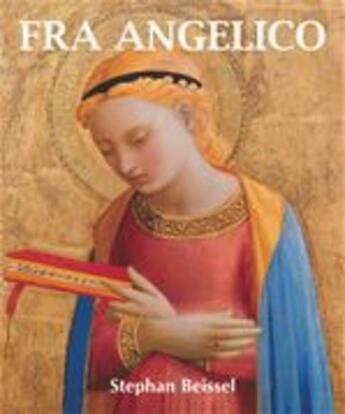Des idées de lecture pour ce début d'année !
Passionné(e) de lecture ? Inscrivez-vous
gratuitement ou connectez-vous pour rejoindre la
communauté et bénéficier de toutes les fonctionnalités du site !

Guido di Petro was born in 1387 in Tuscany, near Fiesole. While still very young, he joined the Observant Dominican order, making the vow of absolute poverty and obedience. His talent soon proved useful as he began to paint miniatures for missals and other religious books. In 1436, along with several other friars, he moved to the convent of San Marco in Florence. There he painted frescos in the cloister and in the chapel. His move to Florence established a fundamental change for him, as he was plunged into the effervescence of a major artistic centre under the protection of Medici family - the most influential patrons of the arts of the time. He was among the first to use the techniques of perspective proposed by Leon Battista Alberti. His method of depicting movement, as well as his use of colour and facial expressions to highlight grace and emotion, place him among the major painters of European Gothic and early Renaissance, with such brilliant works as the Annunciation, and The Last Judgement. Gentile da Fabriano may have been one of his students. By the end of his life, he was an archpriest in Florence and died in 1455 in Rome. Called "Blessed Angelico" for a long time (Vasari dates this name back to 1469), he was not officially beatified until 1984 by Pope John Paul II.
Through a series of magnificent illustrations, combined with artistic and biographical analysis, Stephan Beissel unravels the talent of this unique artist, who alone knew how to paint a Christian soul, and whom André Malraux considered to be the painter who marked the severance between the sacred art of the Middle Ages and the new art born with the Renaissance.
Il n'y a pas encore de discussion sur ce livre
Soyez le premier à en lancer une !

Des idées de lecture pour ce début d'année !

Si certaines sont impressionnantes et effrayantes, d'autres sont drôles et rassurantes !

A gagner : la BD jeunesse adaptée du classique de Mary Shelley !

Caraïbes, 1492. "Ce sont ceux qui ont posé le pied sur ces terres qui ont amené la barbarie, la torture, la cruauté, la destruction des lieux, la mort..."